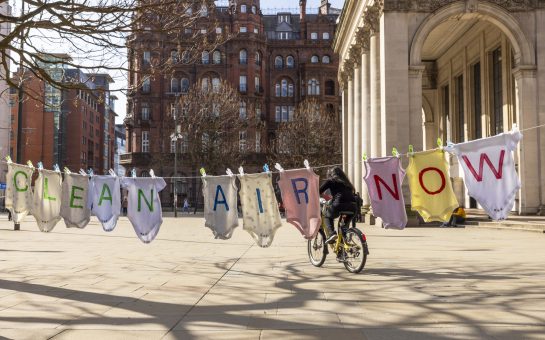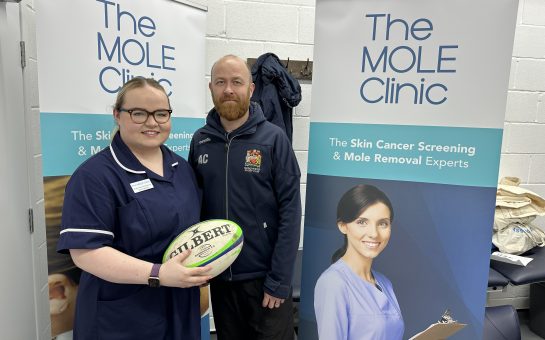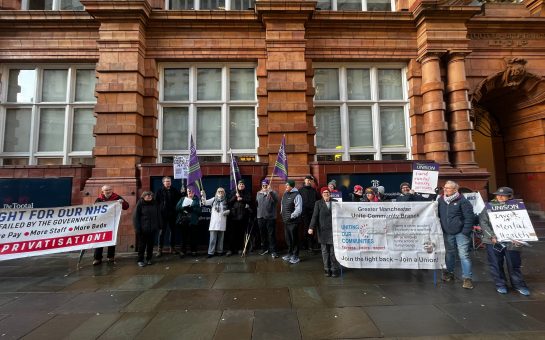It’s relaxing, it’s personal and ‘you can have a Chinese afterwards’, so why wouldn’t Mancunian families be opting for home births?
Historically, giving birth at home was the norm, but because of the poor post-war living conditions and the creation of the NHS, mums were persuaded to give birth in hospitals where they were believed to be safer.
But with 724 officially opting to stay at home during child birth in 2014 alone, it seems to as though it is becoming popular once more.
But why is that?
Many thanks to all who donated to our community birth pool hire scheme and enabled us to buy these! @birthpoolinabox pic.twitter.com/zRxNTv4Wd5
— Manchester Homebirth (@MancHomebirth) March 9, 2016
“I was determined to have a homebirth for my second child because I wanted to avoid anything medical after my caesarean last time,” Clare Carson, mother of two from Salford, told MM.
“I found it really hard getting over a C-section and felt like I’d really missed out.”
Her husband was told by a locum consultant that it was likely that one or both of them could die in labour at home as she was ‘very high risk’.
But after attending support groups and looking at research they believed that despite any risks, being at home would allow her to feel less anxious and increase her ability to labour naturally.
“After the birth I felt amazing,” she said.
“I felt like I’d just accomplished something so fabulous, yet so basic and primal.
“I also felt complete in the sense that as a woman I was able to deliver my baby naturally, without intervention.
“I even laughed through some surges as I realised I was doing a weird 80s rock star air grab each and every contraction.”
Chorlton mother Abi Mistry was diagnosed with Relapsing Remitting Multiple Sclerosis (RRMS) last January.
She chose homebirth as she felt she needed to ‘take control’ of her body, despite some concerned reactions.
“My family, and more so my in-laws, were quite negative about our homebirth plans,” she told us.
“It was a combination of parents worrying about my recent diagnosis, having my first baby etc, and from my in-laws lots of negativity about home births in general.
“It was so frustrating at the time!
“I had the most amazing water birth. My midwife at home was amazing and said I was ‘Superwoman’ for how I performed in my home.”
Private midwife Jo Watson, who has been delivering babies in Manchester since 1980 – including Clint and Charlie Boon’s son Cassius – said that although the overall rates in homebirth are small, the rise could be because women ‘want a more personalised form of maternity care’, as indicated in the results of the recent NHS England Maternity Review.
Women-centred care. How to co-create birth plans with women. Needs to be flexible and adaptable. #usmsconf16 pic.twitter.com/VAf4oWKFdn
— Manchester Homebirth (@MancHomebirth) March 18, 2016
“I think there does seem to be a bit of a backlash against a form of maternity care that feels a bit ‘one size fits all’,” she said.
Having worked for the NHS before she went private with UK Birth Centres Ltd ten years ago, Mrs Watson said it used to be the case that midwives would get to know the women and they didn’t need to make a decision about where to have the baby until the actual day itself.
“When I was in the NHS, if you did a nightshift you could deliver three babies every night,” she said.
“But you don’t remember those sadly as much.
“I keep in touch with all the families now because you really do get very close to them over quite an intense period.
“I don’t forget their births.”
As time moved on, NHS hospitals throughout the country changed to ‘team midwifery’, bringing more ‘disseminated’ care.
Mrs Watson believes national figures are still low for home births because women have misguided perceptions of the risk involved with the procedure.
With only 2% of women choosing home births nationally, most of their friends will have had their babies in hospital.
The fear and the stress involved with having a baby drives them to ‘stick to what they know’.
Mrs Watson said: “The trouble with hospitals is that the strange place, strange people and bright lights mean that hormones such as oxytocin – the key hormone which makes everything contract – doesn’t flow naturally, and that’s what gets the baby down and out.
“The other mechanism is adrenaline, evolutionarily designed to stop women giving birth if they are in danger.
“Adrenaline slows everything down and moves the blood to the legs so the woman can run – not great if you’re having a baby.
“If you’re anxious and labour starts to become difficult, your hospital will do interventions to speed things up which can sometimes be quite traumatic, or the baby might end up in distress.
“And sometimes the women can feel so emotionally upset by a birth that it motivates them to stay at home next time.”
@SMH_Maternity @kathymurphy0 would you like some #homebirth posters and info on our free birth pool hire scheme? pic.twitter.com/fibL3olkRj
— Manchester Homebirth (@MancHomebirth) March 17, 2016
After a traumatic first birth in hospital with her son, Oldham mother of two Marie Thorley chose homebirth when she was pregnant with her second child.
When she was seven months pregnant her mum was admitted to hospital and the frequent visits led her to seek advice about home births.
She was so relaxed during labour that the midwife got there with minutes to spare.
“My first labour lasted for 21 hours and my second was two and a half which was probably helped by the fact I was more relaxed at home,” she said.
“It’s very practical, you can get into your own shower after and have a Chinese.”
Cathy Brewster, co-ordinator of the Greater Manchester Homebirth Support Facebook group that links all of the women above, said that although the region’s homebirth rate is still slightly below the average for England and Wales, 2.3%, she was pleased to see it moving in the right direction.
“It’s wonderful to see an overall increase in the number of women having a homebirth in Greater Manchester in 2014,” she said.
“I hope one day the homebirth rate here becomes as high as the Netherlands where homebirth is considered normal and chosen by over 20% of women.”



